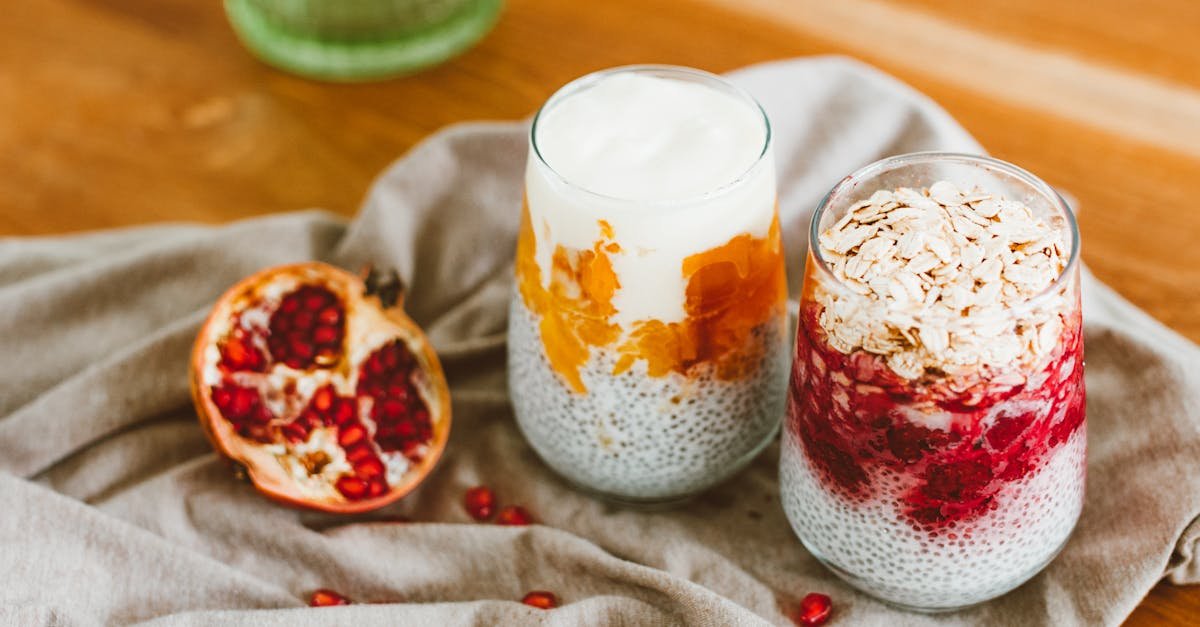Omega-3 fatty acids are essential nutrients that play a vital role in maintaining overall health and longevity. They are known for their anti-inflammatory properties and are linked to a reduced risk of chronic diseases. Incorporating omega-3-rich foods into your diet can enhance your well-being and promote a longer life. Below are some of the top foods rich in omega-3s that you should consider adding to your meals.
Fatty Fish
Fatty fish such as salmon, mackerel, sardines, and trout are among the richest sources of omega-3 fatty acids. These fish are not only delicious but also packed with essential nutrients that can help improve heart health and lower the risk of various diseases.
Chia Seeds
Chia seeds are tiny powerhouses of nutrition, providing a plant-based source of omega-3s. They are also rich in fiber, protein, and various essential minerals. Adding chia seeds to smoothies, yogurt, or oatmeal can boost your omega-3 intake significantly.
Walnuts
Walnuts are a great source of omega-3 fatty acids, particularly alpha-linolenic acid (ALA). They are also high in antioxidants and can support brain health. Snacking on walnuts or adding them to salads and baked goods is an easy way to enhance your diet.
Flaxseeds
Flaxseeds are another excellent plant-based source of omega-3s. They are versatile and can be added to smoothies, cereals, or baked goods. Ground flaxseeds are easier for the body to digest and absorb, making them a smart choice for boosting your omega-3 intake.
Hemp Seeds
Hemp seeds are rich in omega-3 fatty acids and have a nutty flavor that complements various dishes. They are also a complete protein, providing all nine essential amino acids. Sprinkle them on salads, smoothies, or yogurt for a nutritious boost.
Seaweed and Algae
Seaweed and algae are unique sources of omega-3s, particularly for those following a vegan or vegetarian diet. They can be consumed in various forms, including supplements, snacks, or as an ingredient in soups and salads.
Canola Oil
Canola oil is a commonly used cooking oil that contains a decent amount of omega-3 fatty acids. It can be used for frying, baking, and salad dressings, making it a versatile option to incorporate into your diet.
Edamame
Edamame, or young soybeans, are a tasty snack that provides a source of omega-3 fatty acids. They are also high in protein and fiber, making them a healthy addition to salads, stir-fries, or enjoyed on their own.
Brussels Sprouts
Brussels sprouts are a cruciferous vegetable that contains a small amount of omega-3 fatty acids. They are also rich in vitamins, minerals, and antioxidants, making them a nutritious side dish or addition to various meals.
Leafy Greens
Leafy greens such as spinach and kale contain omega-3 fatty acids, though in smaller amounts compared to other sources. Incorporating a variety of greens into your diet can provide numerous health benefits and contribute to your overall omega-3 intake.
| Food Source | Omega-3 Type | Health Benefits | Serving Suggestions | Notes |
|---|---|---|---|---|
| Fatty Fish | EPA/DHA | Heart health, brain function | Grilled, baked, or in sushi | Choose wild-caught when possible |
| Chia Seeds | ALA | High in fiber, antioxidants | In smoothies or overnight oats | Can absorb liquid and expand |
| Walnuts | ALA | Brain health, anti-inflammatory | Snacking or in salads | Store in a cool, dry place |
| Flaxseeds | ALA | Heart health, digestive benefits | Ground in smoothies or baking | Keep refrigerated for freshness |
Including omega-3-rich foods in your diet can greatly enhance your health and longevity. These foods not only provide essential fatty acids but also come with a myriad of other health benefits. By making simple dietary changes and incorporating these foods, you can take significant steps towards a healthier life.
FAQs
What are omega-3 fatty acids?
Omega-3 fatty acids are essential fats that the body cannot produce on its own. They play a crucial role in brain function, heart health, and reducing inflammation.
How much omega-3 should I consume daily?
The recommended daily intake varies, but a common guideline suggests at least 250-500 mg of EPA and DHA combined for general health, with higher amounts for specific health conditions.
Can I get omega-3s from a vegetarian diet?
Yes, plant-based sources such as chia seeds, flaxseeds, and walnuts provide alpha-linolenic acid (ALA), a type of omega-3 fatty acid. However, the conversion rate to EPA and DHA is low, so consider algae-based supplements for those forms.
Are omega-3 supplements effective?
Yes, omega-3 supplements can be effective in providing the necessary fatty acids, especially for those who do not consume enough through diet. However, it’s best to consult with a healthcare provider before starting any supplement regimen.

